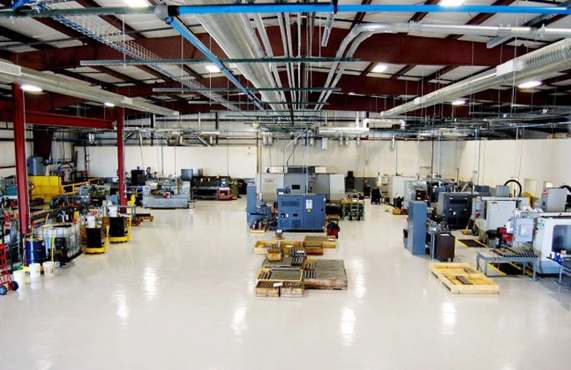
Introduction: The Problem You’re Facing
Every day, your floors are exposed to constant stress—whether it’s the pressure of heavy machinery, high foot traffic, or the chemical spills in a manufacturing facility. And if you’ve been using traditional coatings, you’ve probably noticed that they just don’t hold up as well as you need them to. The cracks, stains, and frequent repairs quickly add up, costing you time and money that could be better spent elsewhere.
You need a solution that can stand up to these daily challenges, and one that can save you from constant maintenance. Polyurea floor coating are fast becoming the preferred option for industries looking for a high-performance, long-lasting solution. But don’t just take our word for it—let’s dive into real-world applications, data, and hard facts to show you how polyurea can make a difference.
What is Polyurea Floor Coating?
Polyurea is a cutting-edge coating solution made from a type of polymer that cures quickly and forms a strong, flexible, seamless layer over your floors. This coating is known for its durability and can handle everything from heavy impacts and abrasions to chemical spills, moisture, and UV exposure. Here’s what sets polyurea apart:
- Quick Curing Time: Polyurea coatings cure in 1-4 hours, meaning minimal downtime for your operations. Compare that to traditional coatings like epoxy, which can take 7 days or longer to fully cure.
- Durability: Polyurea coatings are up to 10 times more resistant to impact and abrasion than epoxy, making them ideal for high-traffic and industrial environments.
- Water & Chemical Resistance: Polyurea resists water and a wide range of chemicals, making it suitable for environments where spills and moisture exposure are common.
- UV Stability: Polyurea maintains its color and strength, even when exposed to sunlight, unlike epoxy, which can yellow and degrade over time.
Common Applications of Polyurea Floor Coating
1. Industrial Warehouses
- Case Study: A distribution center with heavy forklift traffic was facing regular maintenance costs and repairs for its epoxy-coated floors. After switching to polyurea, maintenance costs dropped by 40%, and downtime due to repairs was reduced by 30%. Polyurea’s quick curing time also allowed the warehouse to return to full operation in just 4 hours—much faster than the 3 days required for epoxy coatings to fully cure.
- Data: According to a study by the Polyurea Development Association (PDA), polyurea floors can increase the lifespan of a surface by 3 to 5 times compared to epoxy coatings in high-traffic areas.
- Result: Reduced downtime, enhanced floor performance, and significantly lower maintenance costs.
2. Food Processing Facilities
- Case Study: A food processing plant was struggling with cracks and damage to its floors from constant exposure to water, chemicals, and cleaning agents. Polyurea coatings provided the perfect solution. The seamless nature of polyurea made it easy to clean, while its chemical resistance kept the floor intact even after frequent washdowns.
- Data: Polyurea coatings have been shown to improve hygiene in food processing facilities by reducing the potential for bacteria build-up in cracks and crevices, according to research from the USDA and FDA.
- Result: A safer, more hygienic floor that required fewer repairs, improved operational efficiency, and met stringent industry standards.
3. Commercial Retail Spaces
- Case Study: A retail store with high foot traffic and frequent spills needed a floor that could stand up to both the constant wear and tear and the occasional accident. After applying polyurea, the store noticed a 50% reduction in maintenance costs. Polyurea’s resistance to stains and its UV stability also meant the floors retained their sleek appearance, despite constant exposure to sunlight.
- Data: According to the National Floor Safety Institute (NFSI), polyurea coatings can reduce slip-and-fall incidents by up to 60% in commercial spaces due to their enhanced traction and wear resistance.
- Result: A floor that not only looked great but also performed better, reducing safety risks and maintenance costs.
4. Residential Garages
- Case Study: A homeowner was tired of dealing with oil stains, water damage, and cracked floors in their garage. After applying polyurea, the floor became resistant to oil, water, and other household chemicals. The quick application process also meant they could use the garage again within just a few hours, avoiding the long wait time required by other coatings.
- Data: Homeowners report that polyurea coatings last 2-3 times longer than traditional epoxy coatings in residential applications, according to industry surveys by the National Home Improvement Association.
- Result: A durable, easy-to-maintain floor that required less cleaning and looked like new for years.
Polyurea vs. Other Floor Coatings: The Data Behind the Decision
When comparing polyurea with other types of floor coatings, it’s clear that polyurea consistently outperforms in several key areas. Let’s break it down with some hard data.
Epoxy Floor Coatings
- Curing Time: Epoxy takes 7-10 days to fully cure, while polyurea is ready to use in 1-4 hours.
- Impact Resistance: Polyurea is 10 times more resistant to impacts than epoxy, making it a better choice for industrial or high-traffic environments.
- Durability: Polyurea lasts 3 to 5 times longer than epoxy in heavy-duty applications, reducing the need for frequent repairs.
- Chemical Resistance: Polyurea offers superior resistance to a wider range of chemicals, including oils, solvents, and cleaning agents, compared to epoxy.
Urethane Floor Coatings
- Curing Time: Urethane coatings cure in 24-48 hours, which is faster than epoxy but slower than polyurea.
- Chemical Resistance: While urethane has good chemical resistance, polyurea can withstand more aggressive chemicals without breaking down.
- Temperature Flexibility: Polyurea has a broader temperature tolerance, making it suitable for both very hot and very cold environments, unlike urethane, which is more sensitive to temperature extremes.
Concrete Staining and Polishing
- Aesthetic Appeal: While polished concrete offers a sleek, modern look, it doesn’t provide the same level of protection against damage, moisture, or stains.
- Maintenance: Polished concrete needs to be resealed regularly, unlike polyurea, which offers long-term protection with minimal upkeep.
- Durability: Polyurea coatings are much more durable, resisting scratches, stains, and moisture damage that can affect polished concrete over time.
Why Polyurea is the Smart Choice
Based on real-world data, polyurea coatings deliver superior performance when compared to traditional floor coatings. With quicker curing times, better impact resistance, and longer-lasting durability, polyurea offers a cost-effective solution that ultimately saves businesses money by reducing maintenance costs and downtime.
Conclusion: A Smarter Investment for Your Floors
Polyurea is more than just a high-performance floor coating—it’s an investment in the long-term durability and efficiency of your business. Whether you’re in manufacturing, food processing, or managing a commercial property, polyurea coatings provide the protection, longevity, and ease of maintenance you need to keep your operations running smoothly.
Want to experience the difference for yourself? Visit MPU Coatings to explore our polyurea solutions and discover how they can transform your floors, backed by real data and proven results.
Reference Link:
What You Need To Know About Polyurea Coatings?
Polyurea Polyaspartic One-Day Coating Systems




